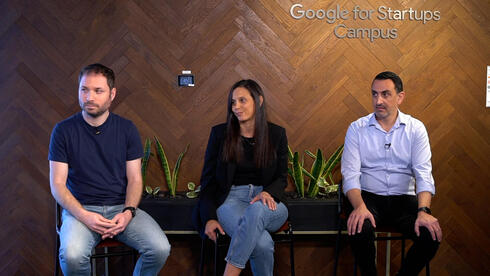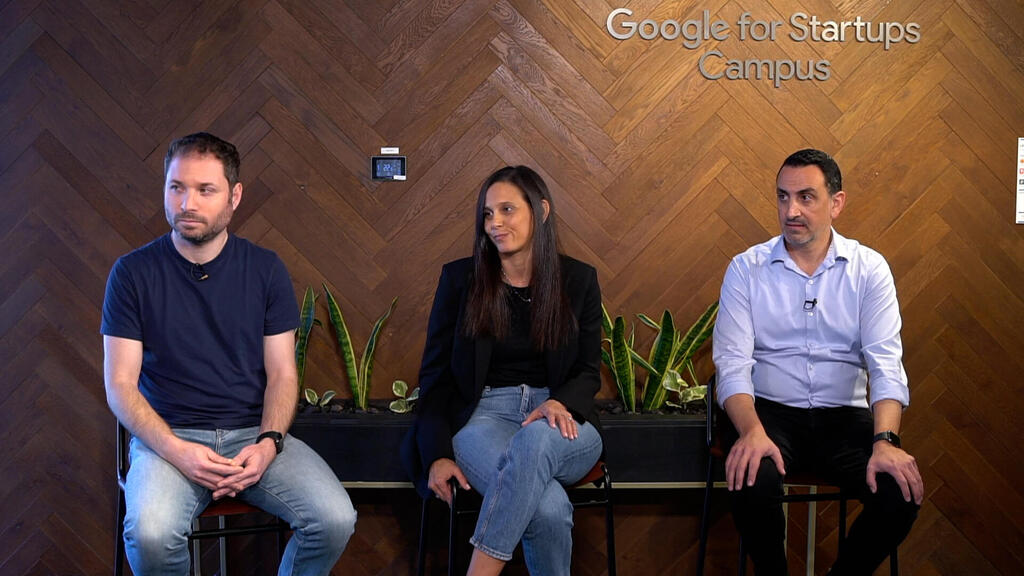
"The fact that Israel started late in AI doesn't mean it's impossible to catch up"
Uri Gabai, CEO of RISE Israel, was talking on a panel on AI development in Israel with Maya Henkin, director of Client & Partner Solutions at Google Israel, and Yaron Inger, co-founder and CTO of Lightricks
"Artificial intelligence (AI) is making a late entry into Israel, and it's part of a global innovation race that will determine not only who controls the technology, but also the economic forces that will drive progress," said Uri Gabai, CEO of RISE Israel, during the second day of Google and Calcalist’s Startup Week.
Gabai elaborated on how Israel should act now to establish leadership in the field of AI. "We need to recognize that just because we've been leading in something for 20 years, it doesn't mean we'll continue to lead for the next 20 years. Israel led because we started before everyone else. Israel's innovation policy began in 1985, long before other countries, and this fueled the flourishing of Israeli high-tech. However, today we are not alone. Almost all developed countries and a large portion of developing countries have an AI strategy, even before Israel has such a strategy.
1 View gallery


Uri Gabai, CEO of RISE Israe (from right), Maya Henkin, director of Client & Partner Solutions at Google Israel, and Yaron Inger, co-founder and CTO of Lightricks.
(Photo: Sinai David)
"The question is whether Israel will continue to be a leading technological power or fall behind. The fact that we started late in AI doesn't mean it's impossible to catch up. But it cannot be achieved without the collaborative efforts of the government, civil society, and the business sector. In the past year, there have been many initiatives, such as a support fund set up by Google in cooperation with the Innovation Authority. We must understand that this race is proceeding at an unprecedented pace. The government must provide the infrastructure for companies' development. Safe macroeconomic conditions must be established."
In a similar context, Maya Henkin, Director of Client & Partner Solutions at Google Israel, discussed the contribution of the company's local R&D center to the AI revolution: "The development center in Israel deals with AI products on a daily basis. Even before GenAI, such as automatic search completion or Gemini, Google's large language model, or text-to-video capability - some of which are developed here in Israel. Google is also tackling bigger problems with AI, and much of this research work is carried out in Israel. For example, the realm of Health AI, focusing on diagnosing diseases more quickly and accurately, or predicting natural disasters."
Yaron Inger, co-founder and CTO of Lightricks, described how the company integrated GenAI products into its current work and products. "In August 2022, we began to notice a strong trend with models that allow you to input text and receive an image," he said. "As soon as these models emerged, we realized that the landscape had changed. We wanted to understand two things: first, how to elevate our products to the next level, and second, how to optimize our processes across various areas, not just development, but also marketing and content creation.
"We understood that as management, we needed to delve deeply into these matters. We learned and launched a campaign within the company, demonstrating to employees how to build things quickly and efficiently, and enhance product capabilities to deliver results that were previously unattainable. This necessitated a shift in mindset among employees. For instance, marketers who can generate content using language models easily, or someone creating content for in-app filters, who can request 'I want to generate a package of filters for Christmas', and our systems can utilize language models to automate these tasks, which previously took weeks."
Inger emphasized that the increase in productivity and efficiency didn't result in a reduction in the number of employees, but rather in an enhancement of the scope and quality of the products: "There's been a leap in employees' skill sets. An employee who once spent several weeks on a specific filter can now complete it in less than a day."













